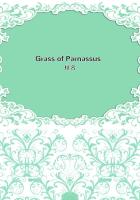"You are right, I did. I have not seen your wife for many years, but I thought I recognized her. My good fortune made me enquire of her husband, and the friendship which formerly attached me to her will henceforth attach me to you."
As I uttered this pretty compliment Therese, as fair as love, rushed into the room with open arms. I took her to my bosom in a transport of delight, and thus we remained for two minutes, two friends, two lovers, happy to see one another after a long and sad parting. We kissed each other again and again, and then bidding her husband sit down she drew me to a couch and gave full course to her tears. I wept too, and my tears were happy ones. At last we wiped our eyes, and glanced towards the husband whom we had completely forgotten. He stood in an attitude of complete astonishment, and we burst out laughing. There was something so comic in his surprise that it would have taxed all the talents of the poet and the caricaturist to depict his expression of amazement. Therese, who knew how to manage him, cried in a pathetic an affectionate voice,--
"My dear Palesi, you see before you my father--nay, more than a father, for this is my generous friend to whom I owe all. Oh, happy moment for which my heart has longed for these ten years past."
At the word "father" the unhappy husband fixed his gaze on me, but I restrained my laughter with considerable difficulty. Although Therese was young for her age, she was only two years younger than I; but friendship gives a new meaning to the sweet name of father.
"Yes, sir," said I, "your Therese is my daughter, my sister, my cherished friend; she is an angel, and this treasure is your wife."
"I did not reply to your last letter," said I, not giving him time to come to himself.
"I know all," she replied. "You fell in love with a nun. You were imprisoned under the Leads, and I heard of your almost miraculous flight at Vienna. I had a false presentiment that I
should see you in that town. Afterwards I heard of you in Paris and Holland, but after you left Paris nobody could tell me any more about you. You will hear some fine tales when I tell you all that has happened to me during the past ten years. Now I am happy. I have my dear Palesi here, who comes from Rome. I
married him a couple of months ago. We are very fond of each other, and I hope you will be as much his friend as mine."
At this I arose and embraced the husband, who cut such an extraordinary figure. He met me with open arms, but in some confusion; he was, no doubt, not yet quite satisfied as to the individual who was his wife's father, brother, friend, and perhaps lover, all at once. Therese saw this feeling in his eyes, and after I had done she came and kissed him most affectionately, which confused me in my turn, for I felt all my old love for her renewed, and as ardent as it was when Don Sancio Pico introduced me to her at Ancona.
Reassured by my embrace and his wife's caress, M. Palesi asked me if I would take a cup of chocolate with them, which he himself would make. I answered that chocolate was my favourite breakfast-
dish, and all the more so when it was made by a friend. He went away to see to it. Our time had come.
As soon as we were alone Therese threw herself into my arms, her face shining with such love as no pen can describe.
"Oh, my love! whom I shall love all my life, clasp me to your breast! Let us give each other a hundred embraces on this happy day, but not again, since my fate has made me another's bride.
To-morrow we will be like brother and sister; to-day let us be lovers."
She had not finished this speech before my bliss was crowned. Our transports were mutual, and we renewed them again and again during the half hour in which we had no fear of an interruption. Her negligent morning dress and my great coat were highly convenient under the circumstances.
After we had satiated in part our amorous ardour we breathed again and sat down. There was a short pause, and then she said, "You must know that I am in love with my husband and determined not to deceive him. What I have just done was a debt I had to pay to the remembrance of my first love. I had to pay it to prove how much I love you; but let us forget it now. You must be contented with the thought of my great affection for you--of which you can have no doubt--and let me still think that you love me; but henceforth do not let us be alone together, as I should give way, and that would vex me. What makes you look so sad?"
"I find you bound, while I am free. I thought we had met never to part again; you had kindled the old fires. I am the same to you as I was at Ancona. I have proved as much, and you can guess how sad I feel at your decree that I am to enjoy you no more. I find that you are not only married but in love with your husband.
Alas! I have come too late, but if I had not stayed at Genoa I
should not have been more fortunate. You shall know all in due time, and in the meanwhile I will be guided by you in everything.
I suppose your husband knows nothing of our connection, and my best plan will be to be reserved, will it not?"
"Yes, dearest, for he knows nothing of my affairs, and I am glad to say he shews no curiosity respecting them. Like everybody else, he knows I made my fortune at Naples; I told him I went there when I was ten years old. That was an innocent lie which hurts nobody;
and in my position I find that inconvenient truths have to give way to lies. I give myself out as only twenty-four, how do you think I look?"
"You look as if you were telling the truth, though I know you must be thirty-two."
"You mean thirty-one, for when I knew you I couldn't have been more than fourteen."
"I thought you were fifteen at least."
"Well, I might admit that between ourselves; but tell me if I look more than twenty-four."
"I swear to you you don't look as old, but at Naples . . . ."
"At Naples some people might be able to contradict me, but nobody would mind them. But I am waiting for what ought to be the sweetest moment of your life."
"What is that, pray?"
"Allow me to keep my own counsel, I want to enjoy your surprise.















